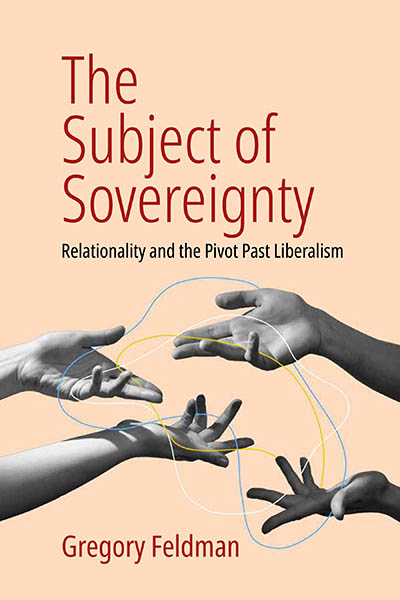“The Subject of Sovereignty is an original and profound meditation on politics and poetics of relationality. In this powerful book Feldman asks difficult but crucial questions about how to imagine otherwise, both in the political arena and in knowledge production.” • Shahram Khosravi, Stockholm University
“Feldman has written an astonishing book. It is a beautifully composed expression of a questioning mind encountering modernity through anthropology, philosophy, and reflection.” • Mark Maguire, Maynooth University
“In highly erudite fashion, Feldman cites examples from ethnography, but also from philosophy, literature, pop culture, and a wide range of other contexts to support his argument through different historical periods… I found it very refreshing to read a book of such wide historical and intellectual scope.” • Ingo W. Schröder, Dept. of Anthropology, University of Marburg
Seeking new forms of democracy, progressive politics raises a fundamental question: what is the alternative to the allegedly coherent, self-contained liberal subject that represents the project of modernity? Exploring the themes of nature, race, and the divine, this book identifies the more realistic alternative in the “relational subject”: a subject that is inseparable from the global field of relations through which it emerges and yet distinct from that field because it lives a life that no one else ever has. Recognizing ourselves as such subjects allows us not only to rethink politics, but, more profoundly, to envision sovereignty as the means by which we each rejuvenate ourselves and the polities we constitute with others.
Gregory Feldman is a political anthropologist at the University of Windsor. He is the author of three books including the The Gray Zone: Sovereignty, Human Smuggling, and Undercover Police Investigation in Europe (Stanford University Press, 2019); We Are All Migrants: Political Action and the Ubiquitous Condition of Migrant-Hood (Stanford Briefs, 2015); The Migration Apparatus: Security, Labor, and Policymaking in the European Union (Stanford University Press, 2011).
Area:
BISAC: SOC002010 SOCIAL SCIENCE/Anthropology/Cultural & Social; PHI019000 PHILOSOPHY/Political; POL035000 POLITICAL SCIENCE/Political Freedom & Security/General


